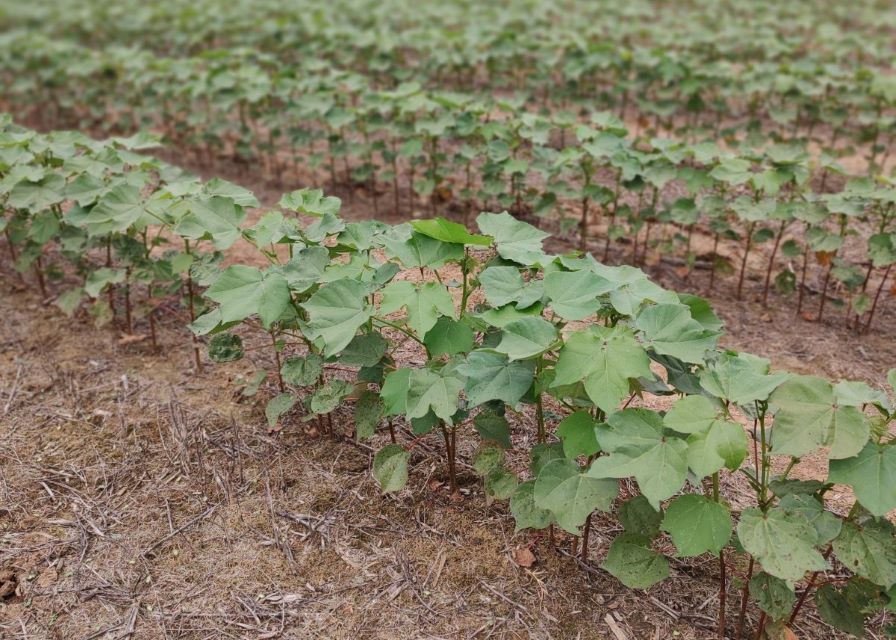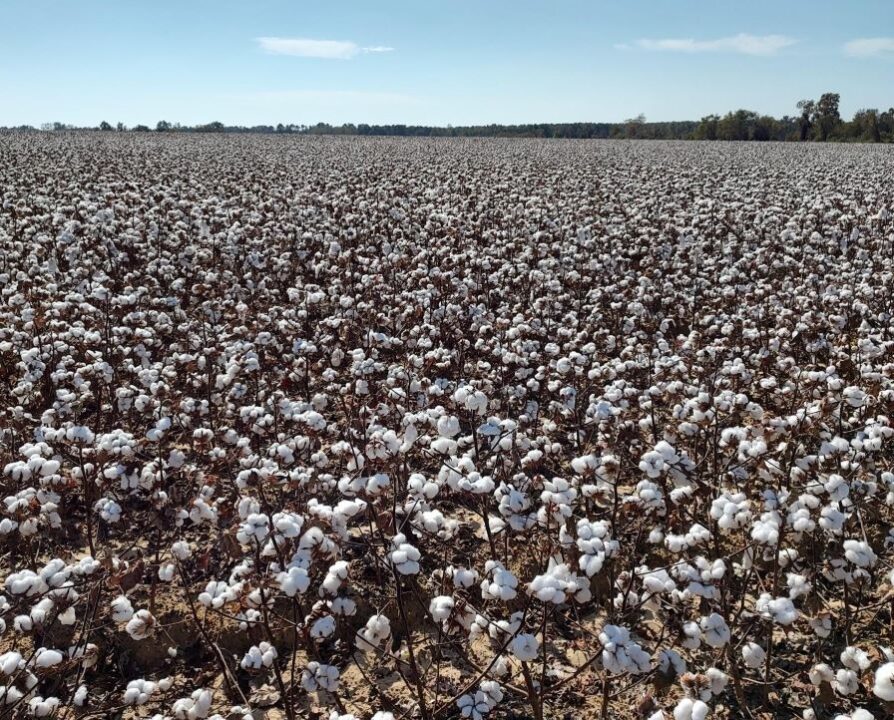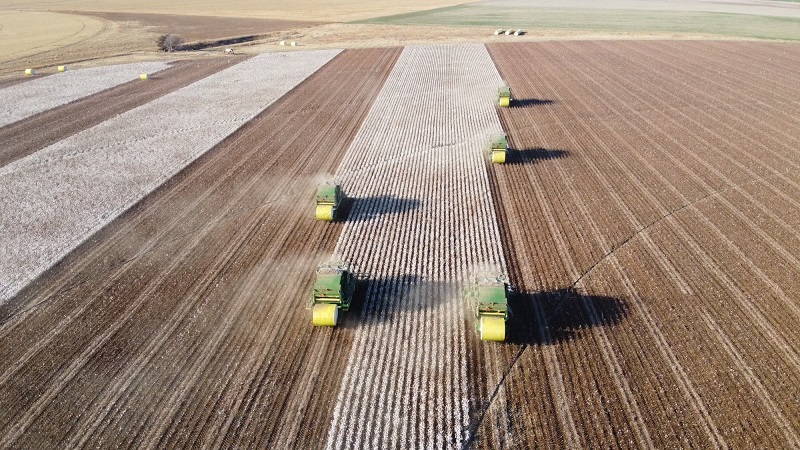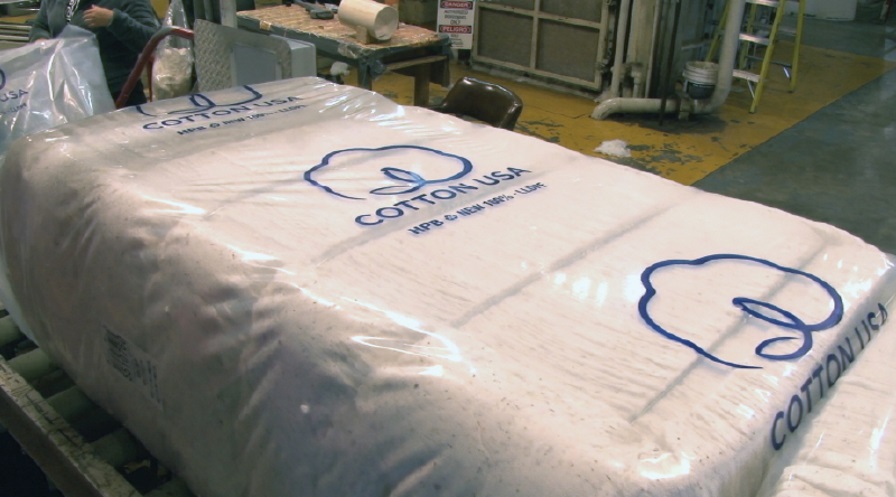16th Australian Cotton Conference: ‘Growing Better All the Time’
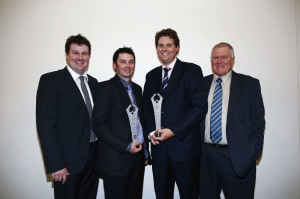
After many years of difficulties – mostly due to weather and environmental challenges – it’s now a good time to be in the cotton industry Down Under.
That sentiment is reflected in the theme of the 16th Australian Cotton Conference: “Growing better all the time.”
This year’s conference, held Aug. 14-16 on Queensland’s Gold Coast, came on the heels of record national production, with seasonal totals approaching 5 million bales. The conference had a focus on research and development, with topics ranging from updates on the biotechnology pipeline, to the top strategies for managing environmental challenges, to focusing on the requirements necessary to produce top-quality dryland cotton.
About 1,600 delegates attended the conference, representing a diverse mix of growers, ginners, merchants and marketers, researchers and representatives from allied industries. It provided a quality information source and plenty of networking opportunities, but it was as much a celebration of a reinvigorated cotton industry as anything else. Attendees had the opportunity to attend sessions, held by both local and international speakers. To say the sessions covered a wide range of topics would be an understatement. One session, held by sex therapist Dr. Rosie King, managed to blend the serious and the humorous in the subject of managing intimate relationships. Another individual who made an impact was Todd Sampson, a motivational speaker who, among many topics, told the story of his ascent up Mt. Everest and the need to look at things from a new and different perspective.
Giving Credit Where It’s Due
The annual awards ceremony and dinner was attended by about 1,000 people. The winners of the prestigious awards were announced, including the Monsanto Grower of the Year, the Cotton Seed Distributors Researcher of the Year, the Chris Lehmann Trust/Bayer CropLife Young Achiever, the AgriRisk High Achiever of the Year, and the Cotton Australia Service to Industry Award.
Nigel Corish was honored as the Monsanto 2012 Cotton Grower of the Year. Corish, who oversees the 4,800-hectare Yambocully farm for the Corish Family Partnership, impressed the judges with his consistently high yields and ever-improving water efficiency.
“We are continually investing into research and development to increase our yields and improve quality,” Corish told Cotton International. “So yes, we are literally ‘growing better all the time.’”
Although he’s already on the cutting edge of modern growing, Corish still left the event with a new appreciation for improvements made by researchers.
“The most memorable moments I got out of the conference was that we can’t take our technology for granted,” he said. “We have to measure the amount of Heliothis resistance we have in the Bollgard cotton and weed resistance in the Roundup-Ready crops.
“We also have to maintain a strong relationship with China, which is now buying 70% of the 4.8 million-bale crop. We have to meet their market specifications, so the Australian Cotton Shippers Association is looking at changing the Australian base grade to a 21 color and 3 leaf grade. This changes the base grade from a middling to a strict middling. It is a target growers can meet, as along as we don’t get a wet harvest.”
Although this was a memorable season for the entire Australian cotton industry, Corish sees continued good times ahead. “We have come out of a seven-year drought and for the moment have good water security, and so we should see another large crop this year,” he says. “Unfortunately, the cash price in Australia is low at the moment – below $400 per bale. That is a direct result of the high Australian exchange rate, which is not good for farmers.”
A Strong, Proud and Resilient Industry
Darling Downs grower Jeff Bidstrup was the presented with the Cotton Australia “Service to Industry” Award. Bidstrup has contributed to the industry at local, regional, state, national and international levels, having served on the Darling Downs Cotton Growers Asscociation for 25 years.
Recently, he has focused on finding innovative ways to protect quality farming land from the impact of the energy sector.
“Obviously, the industry has struggled through the unprecedented drought, but has always remained positive and motivated,” Bidstrup said. “This conference really was like the desert blooming again after the rain – the difference being that I believe this blooming will continue for many years. The debate – coming so soon after the trauma of the drought – that we should again lift the base grade shows the courage and vision of the industry.
“Cotton is back in business and means business,” he continued. “Also, the recognition by all sectors of our industry that our inability to [provide consistent] supply has caused significant difficulty for our customers, and we sincerely appreciate the resurgence of support.”
Bidstrup concluded: “We are again strong and stable suppliers, committed to working with our customers to help enhance our product, to improve our market share and their market penetration and product quality. Australian cotton growers are committed to working to ensure their spinning mill customers are supplied with cotton that is the best quality and value to them and to the final customer to ensure that our cotton is recognised and appreciated at all levels of the supply chain.”
For information on the “Green Dividend” go to page two.
Sustainable Operations Result in a $75,000 “Green Dividend”
Donor Bridge, a searchable online database containing information on every nonprofit in the United States, recently provided the conduit for a substantial donation to the ECOM Foundation for the Development of Origin Resources. It disbursed $75,000 as a “green dividend” – which, for the first time, included sustainable cotton operations in Central Asia.
The green dividend boost to this year’s funding was made possible by the premium return from ECOM’s insurers, who have voluntarily chosen to recognize clients operating within certain tenets of sustainability.
For ECOM’s insurers, the hallmark of sustainability must be that the socially responsible coverholders (ECOM in this case) employ the practices of counting, training, and tracing as core elements within their commodity sourcing and trading.
“The return or ‘green dividend’ also recognizes the commercial reality that sustainability can and should make for a better risk,” says Ted Rekerdres, head of Rekerdres & Sons Insurance, who originated the idea some years ago.
“We have far better loss ratios when origin traders have a tight count of their goods, help train their producers, and maintain traceability,” he added.
“The result is a win-win-win” says Carol Salaiz, CPA and Chair of the Foundation. “ECOM’s insurers have both commercial and humanistic reasons to work within an auditable donation channel capable of direct outreach to rural growers.”
The Foundation has served producer communities around the world in projects ranging from healthcare in Central America and Africa, to literacy programs in India, to farm extension programs in South America.
Sept. 13 was this year’s “North Texas Giving Day,” in which every donation over $25 will be matched by an additional percentage. Last year, the special event raised a record-breaking $10.7 million through more than 13,500 donations. For more information, visit http://donorbridgetx.org/.




